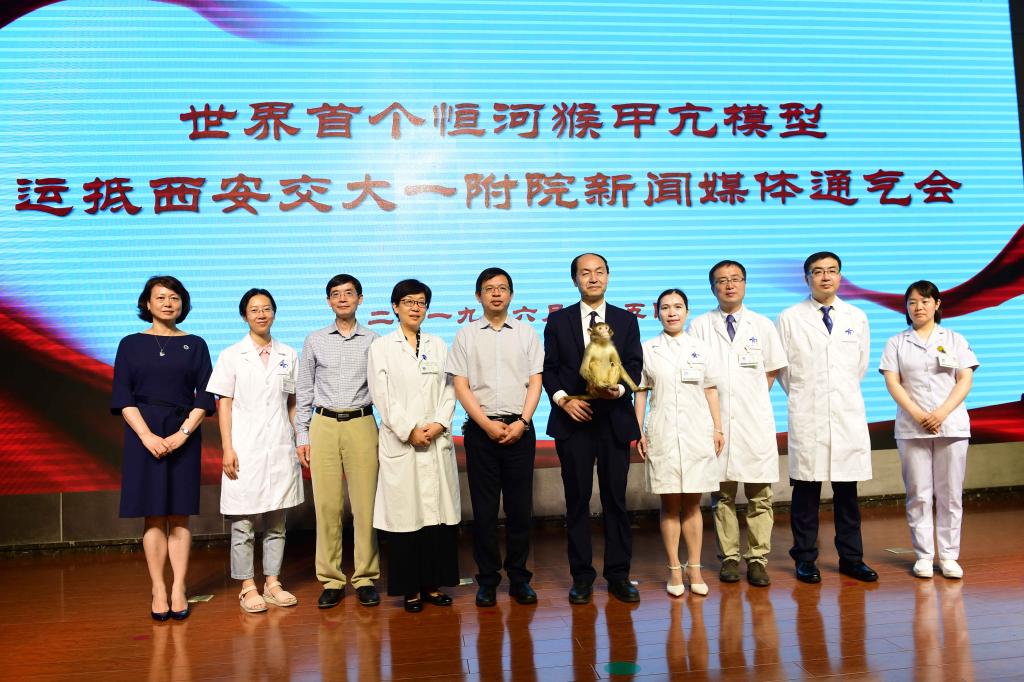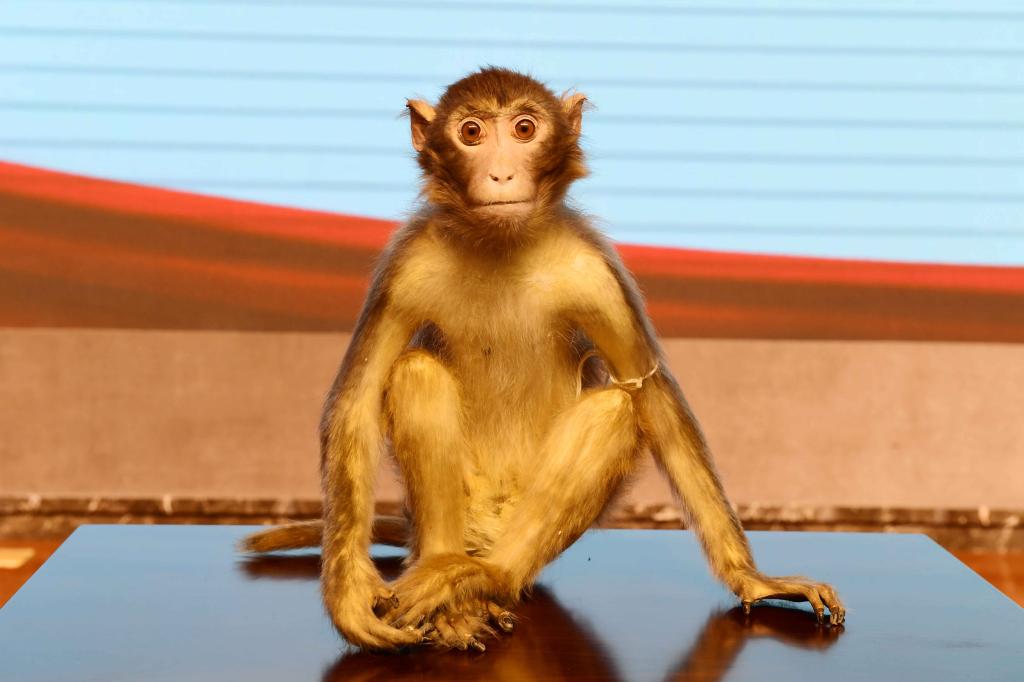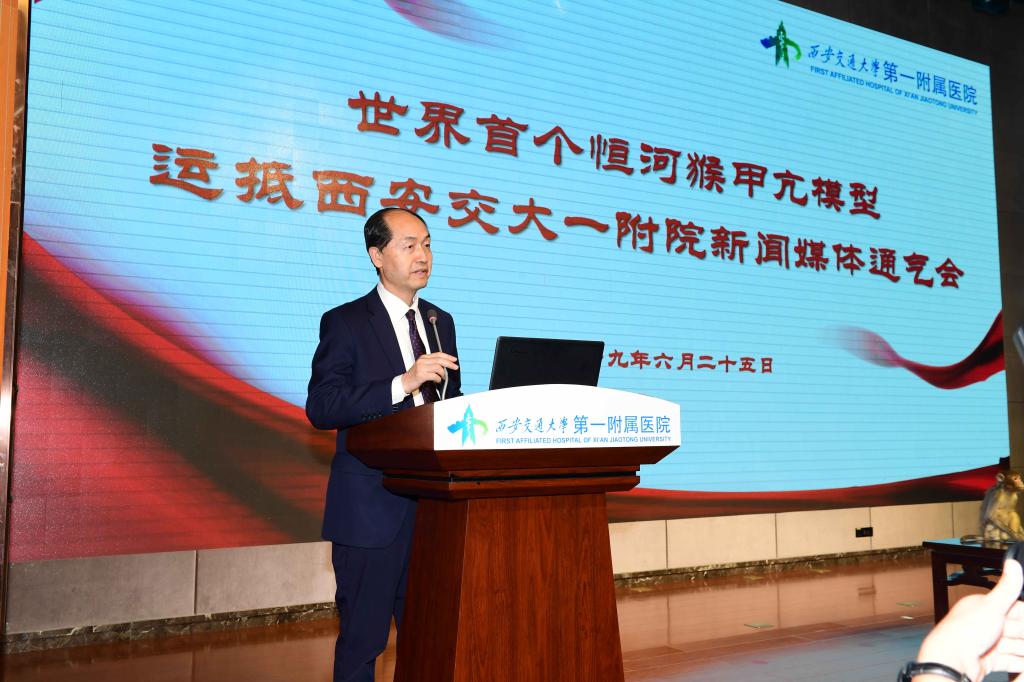On June 25, the world's first rhesus monkey model of hyperthyroidism was transferred back to Xi 'an, which was successfully established by the team led by Professor Shi Bingyin after 4-year arduous research in Kunming Institute of Zoology of Chinese Academy of Sciences. This model can reflect all clinical phenotypes of human hyperthyroidism and has achieved significant outcomes in preventing hyperthyroidism by vaccines. It signifies another tremendous scientific contribution of the team following the successful prevention of hyperthyroidism by vaccines in mouse models in 2011. Due to the high homology between rhesus monkey and human, the establishment of rhesus monkey model of hyperthyroidism and successful validation of the vaccines against hyperthyroidism in rhesus monkeys has laid a solid fundament for the research and development of human vaccines against hyperthyroidism and the prevention of hyperthyroidism.


The application of anti-thyroid drug therapy requires a long course of treatment with high recurrence rate and low heal rate. Radioactive iodine therapies have been converted to hypothyroidism and cause isotope contamination in many cases. Surgical interventions yield a high risk of postoperative complications and possible recurrence or hypothyroidism. Therefore, exploring novel preventions and treatments of hyperthyroidism, especially the development of human vaccines against hyperthyroidism, has become a major issue in the field of endocrinology. In 2011, team led by Professor Shi Bingyin successfully established a mouse model of hyperthyroidism and performed the research and development of hyperthyroidism vaccine using this model. However, developmental traits and genetic background sharply differed between mouse and human, and no human hyperthyroidism-related manifestations were observed in the mouse models. Subsequently, Dr. Wang Yue, a key researcher of Professor Shi Bingyin's team, explored the possibility of establishing a rhesus monkey model of hyperthyroidism. After over 4 years of hard work at Kunming Institute of Zoology of Chinese Academy of Sciences in Yunnan province, Dr. Wu Liping and Guan Xiaoyan, nurse from our hospital eventually established the complete set of experimental procedures for establishing a rhesus monkey model of hyperthyroidism, and validated that vaccines could prevent the incidence of hyperthyroidism. Comparative experiment has proven that the prevention rate of hyperthyroidism by vaccine injection exceeds 90%. The rhesus monkey here is the model presenting the most typical characteristics of hyperthyroidism in this study. After accidental death, the Kunming Institute of Zoology of Chinese Academy of Sciences was commissioned to make a specimen, which is transferred to our hospital and will be prepared for subsequent teaching and scientific research.
The successful establishment of rhesus monkey of hyperthyroidism and verification of efficacy of hyperthyroidism vaccine indicate that this research field in China has reached the international leading level. The research outcomes of the team led by Professor Shi Bingyin offer the most advanced research tool for hyperthyroidism, lay a solid scientific research foundation for the development of human vaccines against hyperthyroidism and contribute to realizing the goal of completely preventing human hyperthyroidism.
